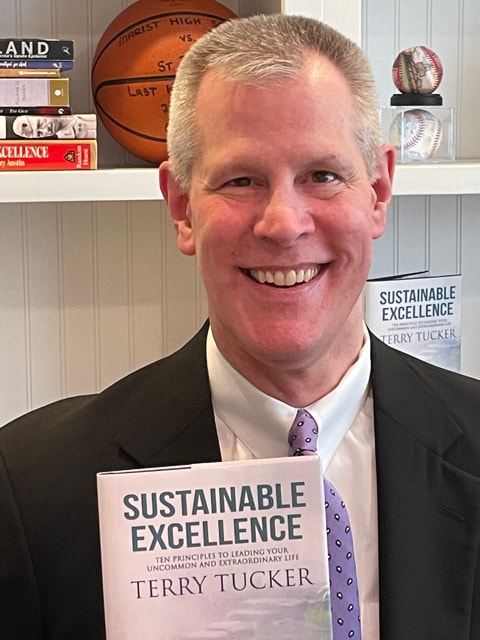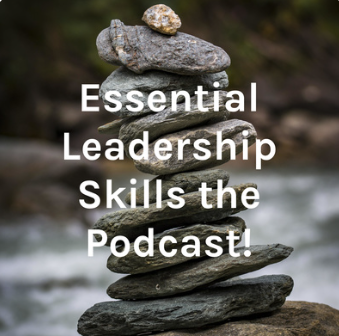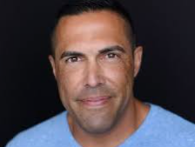|
“Beginner’s mind is a readiness to always be in awe, to always be excited. A beginner’s mind is one’s mind before the hurts of life have made us cautious and self-protective. We can still be excited, we can still be in awe, we can still expect tomorrow to be different from today.” - Fr. Richard Rohr
How do use your beginner’s mind to expect a different tomorrow?
0 Comments
What would you say is the biggest way to improve the culture of an organization? According to Forbes magazine (Rolnick 3/11/2021), here are six suggestions to improving a corporate culture: 1. Share your company's mission and values - When employees feel part of something that is bigger than themselves, they tend to work harder and be more productive. 2. Be flexible with your employees when it comes to getting the work accomplished - While the work still needs to be completed on time, be flexible with your employee's schedules where possible. 3. Encourage your employees to be their authentic selves - Obviously, there needs to be some guardrails here, but the more you allow employees to be themselves, the more productive they will be. 4. Have more cross-functional events - Implement more cross-department meetings and functions to help foster strong working relationships. 5. Increase employee recognition - Harvard Business Review indicates that recognition is the most important component of employee engagement. 6. Encourage time to play - According to Eagle Hill Consulting, 58% of employees are burned out. Give your staff time to recharge their batteries. If you do a Google search of ways to improve corporate culture, you will come up with many more ways to improve morale. Back in the 1970s, Ford Motor Company was run by the grandson of Henry Ford, Henry II. Henry II was an authoritarian leader who believed in a top-down style of management. Watch the video below to see how the new Ford CEO, Donald Petersen, changed the company management style and significantly improved the corporate culture. Also, please leave me a comment about what items you believe are important to improve corporate culture. “Ability is important in our quest for success, but dependability is critical.” - Zig Ziglar
How does the road to success depend on you? New Audio Recording Available From Essential Leadership Skills Podcast With Glenn E. Daniels II4/21/2023 Please check out my latest audio recording from the Essential Leadership Skills Podcast With Glenn E. Daniels II. You can listen to the podcast by clicking on the AUDIO PODCASTS & RADIO INTERVIEWS button at the top of this page, then click on the PODCAST INTERVIEWS tab and scroll down and click on the Essential Leadership Skills Podcast tab.
“We cannot accept in victory what we would not accept in defeat.” - Dick Bennett
What would you accept in victory and defeat? Please check out my latest YouTube recording from the Showing Up: Perspectives On Cancer Podcast with Tim Sohn & Erica Campbell. You can watch the podcast by clicking on the PODCAST & SPEAKING VIDEOS button at the top of this page and scroll down and click on the Showing Up: Perspectives On Cancer Podcast tab.
“To avoid criticism, say nothing, do nothing, be nothing.” - Fred Shero
How do you handle criticism when doing the right thing? Please check out my latest audio recording from the Wellness On Demand Podcast With Garvin Reid. You can listen to the podcast by clicking on the AUDIO PODCASTS & RADIO INTERVIEWS button at the top of this page, then click on the PODCAST INTERVIEWS tab and scroll down and click on the Wellness On Demand Podcast tab.
“Happiness is not the absence of problems, it’s the ability to deal with them.” - Steve Maraboli
How are you able to happily deal with your problems? It's been said that the world is made up of two types of people, givers and takers. But most organizations today pride themselves on the collaborative environment they have established. They want to employ people who will work within a group and contribute their knowledge and expertise for the betterment of the team, not the individual. I recently read the book, Give and Take, by Adam Grant. Grant defines people as either takers, givers, or matchers. Takers - These people favor receiving more than giving. It is a zero-sum game for them. Therefore in order for them to be successful, someone else must fail. They are all about calling attention to themselves so that everyone can see the success of the project was a direct result of the effort they made. Givers - These people like giving more than receiving. When the advantages to others outweigh their own importance, they make the extra effort to ensure others succeed. Matchers - These people find the balance between taking and giving. They engage in a quid pro quo style of participation and try to find an equilibrium between giving and taking. Overall, givers tend to be more successful than takers or matchers. These individuals are people of good character who do what they say they will do when they say it will get done. If they are unable to complete a task on time, they let others know why the job won't be finished and when they can expect to have it completed. They are dependable, reliable, and trustworthy. Unfortunately, givers are a rare breed these days. So if you are a supervisor who has someone on your team who is willing to sacrifice their glory for the betterment of the group, you should recognize them at every opportunity for their efforts. Check out the video below about stories David Dunn tells in his book, Try Giving Yourself Away, regarding the importance of executives who are givers and how that positively impacts their team and the organization. Also, please leave me a comment about your thoughts on givers, takers, and matchers in your group or organization. “It’s not what we teach, it’s what we emphasize.” - Don Meyer
How are you emphasizing the right things? The Lumberjacks
It was the annual lumberjack competition and the final was between an older, experienced lumberjack and a younger, stronger lumberjack. The rule of the competition was quite simply who could fell the most trees in a day was the winner. The younger lumberjack was full of enthusiasm and went off into the wood and set to work straight away. He worked all through the day and all through the night. As he worked, he could hear the older lumberjack working in another part of the forest and he felt more and more confident with every tree he felled that he would win. At regular intervals throughout the day, the noise of trees being felled coming from the other part of the forest would stop. The younger lumberjack took heart from this, knowing that this meant the older lumberjack was taking a rest, whereas he could use his superior youth and strength and stamina to keep going. At the end of the competition, the younger lumberjack felt confident he had won. He looked in front of him at the piles of felled trees that were the result of his superhuman effort. At the medal ceremony, he stood on the podium confident and expecting to be awarded the prize of champion lumberjack. Next to him stood the older lumberjack who looked surprisingly less exhausted than he felt. When the results were read out, he was devastated to hear that the older lumberjack had chopped down significantly more trees than he had. He turned to the older lumber jack and said: “How can this be? I heard you take a rest every hour and I worked continuously through the night. What's more, I am stronger and fitter than you old man”. The older lumberjack turned to him and said: “Every hour, I took a break to rest and sharpen my saw”. www.rogerdarlington.me.uk/stories. “Don’t judge each day by the harvest you reap, but by the seeds you plant.”
Robert Louis Stevenson Where are you planting the seeds of your success? “Admitting our powerlessness frees us to allow the One who is Power to become active in our lives. We become more open to new ways of doing things as we allow God to love us and teach us how to give and receive love.” - Catherine Chapman
How do you free yourself to receive the love you deserve? How important is it to get people to cooperate with you as a leader, as opposed to using your authority to order people to do something you want completed? While it's essential for members of the military and para-military organizations such as first responders, to obey orders because it maintains good order, discipline, and readiness during battle or critical incidents, is that the way a good leader should function? According to an article in Forbes (Brower, 11/10/2019), a study in Chaos, An Interdisciplinary Journal of Non Linear Science found when people cooperate with more group members over longer periods of time, they are more likely to emerge as leaders within the group. Cooperation may be a vital way for leaders to gain influence and for groups to be successful. The Forbes article goes on to say that leaders who cooperate, share, and foster belonging within the group, will be more influential and successful over time. There are four ways that this leadership style shows up on a daily basis: 1. Share Common Goals - Successful leadership is all about creating an environment of common goals and outcomes. Look for projects across the organization where groups can collaborate and cooperate to get the job done. 2. Share The Spotlight - Smart leaders understand that their influence comes from making others around them successful. Be an invested champion of your people's success. 3. Share Information - While some information might need to be held close to the vest, the general rule is that transparency is better. When employees feel in the loop and part of the information network, they buy in to the corporate culture. 4. Share Yourself - Being authentic is essential to being a good leader. Employees want leaders who are strong under pressure, but who can also show their vulnerable side as well. Watch the video below for another aspect of how good leaders conduct themselves. Also, please leave me a comment about your thoughts regarding the importance of cooperation as a quality of a good leader. |


Author & SpeakerTerry is a sought after speaker who believes in the power of a story to motivate, inspire, and help others lead their uncommon and extraordinary lives. By combining his twelve-year cancer journey with his diverse business, athletic coaching, and hostage negotiating expertise, he delivers compelling yet relatable presentations for conferences, on-line events, panels, meetings, and seminars. Archives
April 2024
|














 RSS Feed
RSS Feed